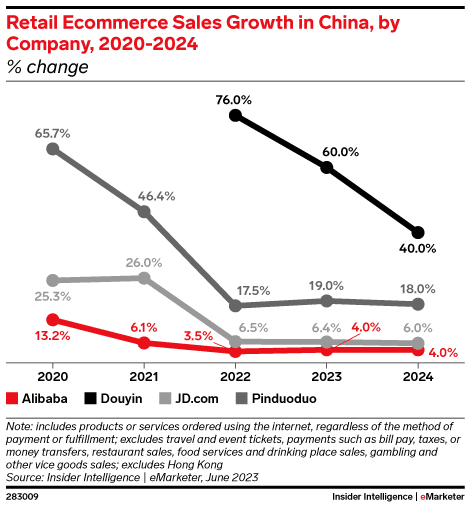TikTok’s own employees are complaining internally that ByteDance, the Chinese parent company of the social media monolith, controls TikTok’s operations much more closely than it wants the public to believe.
The complaints were reportedly sparked by recent transfers of leadership staff from ByteDance to TikTok.
The transferred executives now hold major positions near the top of the company and oversee many of the most important facets of the company. These include its advertising business, human resources department, monetization in general, marketing, and its recent product and ecommerce initiatives.
One of the worried employees even contacted Texas Senator Ted Cruz, hoping that he would investigate.
TikTok executives have been trying to minimize the ties between TikTok and ByteDance (and thus China’s ruling party as well) to convince the US public and government that it isn’t a national security threat.
A TikTok spokesperson quickly addressed the claims that these executives were sent to exert more control over the company, stating that staff changes are common in global companies like ByteDance. He added that TikTok has not attempted to downplay its ties to its Chinese parent company.
This is refuted by internal TikTok documents obtained by the Wall Street Journal which instructed new hires to “Downplay the parent company ByteDance” and “Downplay the China association.” A TikTok spokesman argued that these documents were never an official company policy.
Why TikTok Might Be a National Security Threat for the US
The unique laws of the Chinese Communist Party (CCP) give the US government good reason to be wary of Chinese companies collecting massive amounts of data from US citizens. In an attempt to increase government power and control over private companies, the leader of China, Xi Jinping, passed a series of sweeping national security laws over the past decade.
One of the most impactful of these laws, named the National Intelligence Law, was passed in 2017. It requires “any organization or citizen” in China to “support and cooperate in national intelligence work.”
This vague statute likely gives the ruling party the power to demand the cooperation of any private or state-owned company (including ByteDance) to gather valuable data from large swaths of the people of its geopolitical rival.
It’s unclear whether such an arrangement between ByteDance and the CCP has ever taken place but this law by itself makes Chinese-based companies that collect US data a potential national security threat by default.
Both the Trump and Biden administrations have tried to take action to remove the potential threat but to varying degrees. The Trump administration tried to ban downloads of the TikTok app entirely but was unsuccessful. Biden’s administration asked the Chinese owners of TikTok to sell their ownership of the company.
Of course, ByteDance didn’t willingly sell one of its greatest cash cows just because the Biden administration asked it to. However, it has still tried to minimize TikTok’s connection to China in many different ways to try to avoid further attempts to diminish the influence of the app in the US. It founded regional headquarters in Culver California and even partnered with US tech giant Oracle to monitor the app’s algorithm and store its user data in the US.
Despite these changes, sources within TikTok said control over the moneymaking decisions of TikTok was left to US executives and ByteDance had little input beyond setting budgets and making suggestions. However, these sources told the Wall Street Journal that this structure was quickly changing this year.
They said that the executives transferred from ByteDance took much greater control over the moneymaking operations. A spokesman for TikTok refuted this notion, saying that decisions are made by the leaders of each branch of the business.
Even if these allegations are true they may still be entirely harmless from a national security standpoint. The transfers may simply be an attempt to replicate ByteDance’s success in ecommerce with the Chinese version of TikTok, Douyin.
Douyin’s Remarkable Ecommerce Success Story
Douyin launched its own ecommerce platform in 2018, allowing users to set up their own stores within the app. It saw decent initial sales but it didn’t fully dedicate itself to ecommerce until 2020 when it set up a dedicated unit for it and started restricting livestream sales from third-party platforms.
The app lets companies sell their products using short-form videos and livestreams, taking about 1-5% commission on every sale. Because of the massive competition for sellers on the app, it is essentially necessary to buy advertising from Douyin to see much success. In turn, Douyin makes a killing on both advertising and commissions.
Douyin also makes the process of selling items on its app as easy as possible. It launched a program that it calls “Douyin Partners” where sellers can partner with companies to run their entire Douyin account for them.
They handle everything from making video ads and livestreaming infomercials to devising an advertising strategy and performing customer service. They even provide warehousing and logistics when needed.
The app’s massive user base of over 800 million people, combined with its brilliant ecommerce-first business model have made it the fastest-growing retail ecommerce platform in China by an enormous margin. Its growth has slowed over the past year from 76% to 60% but it still dominates the market.

More recently, ByteDance has pushed TikTok to explore its direct-to-consumer ecommerce business model in the US but it has yet to be very successful. The initiative, called “TikTok Shop” is on track to bleed $500 million in the US according to a recent report from The Information.
ByteDance leadership may simply be transferring executives to the US to impart the strategies and knowledge that have worked so well in China. It would make perfect sense to impart the experience of executives seeing the most success with those who are struggling. Nevertheless, only ByteDance’s top brass know its exact motives for these personnel transfers.